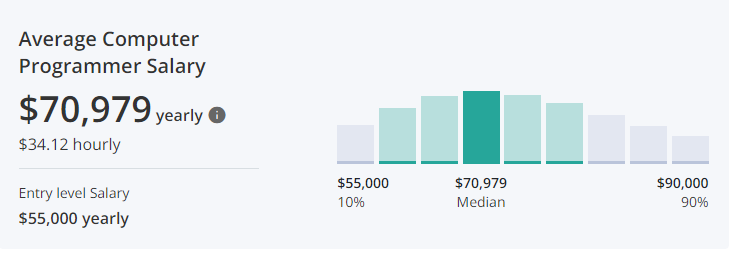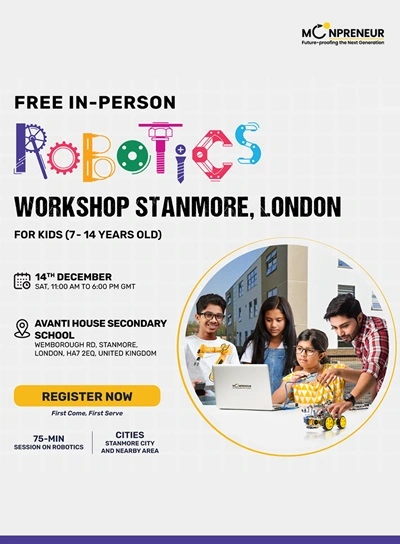
Update: This article was last updated on 24th October 2024 to reflect the accuracy and up-to-date information on the page.
Want to learn coding but worried it might not be the best idea? Are you asking yourself, is coding hard and wondering if you’re in over your head?We understand—code can look intimidating. All those lines filled with words, symbols, brackets, and punctuation might seem like an alien language. It can be tough to see how all that code connects to the websites or apps you use every day.
But is coding hard to learn, really? The answer might surprise you.
In reality, coding is easier than it looks. Programming is a vast field where almost anyone can find a niche that fits their interests. In this article, we’ll show you why practically anyone can learn to code, along with expert tips to help make the learning process smoother and more approachable.

Is Coding Hard to Learn?
Absolutely! Coding isn’t hard to learn, but it’s not exactly a breeze either. Think of it as climbing a steep hill—it can be challenging at first, but you’ll likely surprise yourself with how much you can grasp along the way. As you progress, you’ll notice that coding becomes easier with practice. The key is not to give up during those tough early stages. For younger learners, Moonprenur also provides coding classes for kids from scratch, making it easier for them to start early and build confidence.
Many wonder, “Is coding hard?” Sure, it might seem foreign and time-consuming at the start. But that’s true for learning any new skill, whether it’s salsa dancing, watercolor painting, or installing a garbage disposal. Coding, like these, requires time, effort, and persistence.
While some people may have a natural inclination for logic, math, and problem-solving—qualities that help in programming—nobody’s born knowing C++, Python, or Robotics. Even the best programmers started from zero, not being able to write a single line of code. With dedication, you can build those skills from the ground up!
3 ways to learn how to code: how hard is coding
Learning to code can be done in different ways, depending on your preference. If you’re wondering, “is coding hard?”, it really depends on how you approach it and how much effort you put in. Here are three common ways people learn to code:
1. Take a class
Some students learn coding in school or Robotics clubs for kids, especially since some states in the USA organize inperson robotics workshops for kids 7-14 Years.
2.Use an online platform
There are many online platforms, like Codecademy, Treehouse, that teach coding. These are great options for people who prefer learning at their own pace. Many of these platforms are free, but you’ll need to stay disciplined and practice regularly.
3.Teach yourself
If you’re very self-motivated, you can learn coding on your own. You can use books, YouTube tutorials, or download coding software to start practicing. Self-teaching requires a lot of discipline and consistency to make real progress.
So, is coding hard? It depends, but with the right resources and dedication, anyone can learn it!
3 Easy Coding Languages to Learn
1. Scratch
Scratch is a visual programming language where you connect “blocks” to create code, like putting puzzle pieces together. Developed by MIT to teach kids, it’s fun and intuitive, making it a great starting point for beginners.
2. Python
Python is widely used because it’s a “high-level” language, meaning it closely resembles English. This makes it much easier for beginners to understand. Since Python’s syntax is straightforward, it’s often taught in coding classes.
3. Java
Java is another beginner-friendly language. It’s commonly taught in high schools and colleges, and its high-level structure makes it easier to grasp. Many students use Java for their AP Computer Science exams.
4 Tips to Make Coding Easier
Wondering if coding is hard? Here are some simple tips to make it easier:
1. Use Comments
Add comments to your code to explain what each part does. Comments won’t affect how your code runs, but they’ll help you (or others) understand it better when you need to update or fix something later.
2. Join a Coder Community
Even pros get stuck sometimes! Joining a coder community can help you learn from others, discover new resources, and get advice when you need it.
3. Take a Coding Course
Self-learning is great, but taking a course can help you set clear goals, find the right resources, and follow a structured plan to learn faster.
4. Embrace Mistakes
Don’t be afraid to make mistakes. Just like learning to ride a bike, falling is part of the process. Keep going and you’ll improve over time! As Eleanor Roosevelt says, “Learn from the mistakes of others. You can’t live long enough to make them all yourself..
Conclusion
While coding may seem challenging at first, it’s not as hard as it appears. Like any new skill, it requires time, practice, and persistence. With the right approach—whether through taking a class, joining a community, or self-learning—you can overcome the initial hurdles. Coding becomes easier as you gain experience, and anyone can learn it with dedication. Remember, mistakes are part of the process, so don’t be afraid to embrace them as stepping stones toward becoming a confident coder.
Want to make your child future-ready with Robotics? Moonpreneur offers a tailor-made program. Reserve a spot in our free 60-minute workshop today and introduce them to the amazing world of robotics and innovations!
















